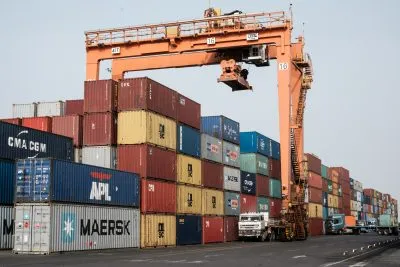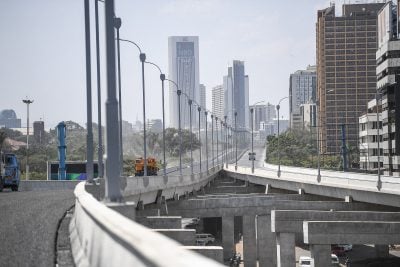As Algeria’s transition looks increasingly strained, investors in the country’s energy sector are steering clear or looking for a way out, as Shoshana Kedem reports.
On 10 May, for the twelfth consecutive Friday, hundreds of thousands of Algerians flooded the narrow streets around the capital’s Central Post Office, demanding the departure of the country’s ruling elite.
Similar demonstrations were held in Oran, Constantine and Annaba, the country’s major cities, with protesters braving the blazing Ramadan sun to make their voices heard.
Algeria’s revolutionary moment has reached a stalemate. The official leaders of the protest movement are operating from the shadows for fear of reprisals from the ruling political and military elite, Le Pouvoir. Such conditions make it hard for negotiations between the two sides to progress.
Mutual trust is in short supply after the last six weeks saw the ousting of the country’s president after 20 years in power and a flurry of dismissals, including the chief of the country’s state energy company, Sonatrach, which sent shockwaves through global energy markets.
The government is in a state of paralysis as officials scramble for survival.
The burden of a transitional government lacking the legitimacy to govern – and the financial clout to reform the economy – is weighing heavily on the energy sector.
Protesters meanwhile are demanding sweeping changes to the economy and energy sector, whose riches they say have increased corruption and helped entrench the group of ruling politicians that they want to see toppled.
Algeria’s economy depends on hydrocarbon exports for more than 40% of the state budget.
But a global downturn in the price of crude, stagnant production in ageing fields, and rising domestic consumption that limits the gas available for export has hit revenues hard.
The interim government, led by president Abdelkader Bensalah and traditional regime supporters, lacks the legitimacy and resources to push through economic and energy sector reform that will make the country more attractive to investors.
Before the unrest, the former head of Sonatrach, Abdelmoumen Ould Kaddour led sweeping changes to the country’s energy laws, including the 2006 hydrocarbons law mandating that Sonatrach hold at least a 51% participating share in any upstream project, and a 20% royalty on production, among other things.
Moving toward crisis
With rates of inflation and unemployment rapidly rising to 3.5% and 30% respectively this year, the country is headed for economic disaster, says Anthony Skinner, director of global risk firm Verisk Maplecroft.
“Algeria’s fundamental economic picture [is] rapidly moving towards an economic crisis, and in order to try and offset, to the extent possible, an economic train crash, Algeria needs to boost production, especially of gas,” he explains.
“To boost production, and also to maximise export revenues, it needs to not only expand the footprint of international oil companies [IOCs] that are already in the country, but also attract IOCs that do not currently have investments in Algeria.”
If Algeria is to attract IOCs to their rich Amenas gas basin, the country needs a functioning government that can close deals and enact reforms to the energy laws.
But with the government mired in political crisis, oil and gas investors are staying away and those already in the country are looking for a way out.
For years investors in Algeria’s energy sector have been deterred by tough investment terms, red tape, corruption and mismanagement.
Many of them have waited patiently for amendments to Algeria’s hydrocarbon law to be passed by parliament.
But the removal of the Sonatrach CEO has dampened hopes that the reforms he was leading will be carried out.
Kaddour’s allegiance to former president Abdulaziz Bouteflika, who was forced from power on 2 April, influenced the military’s decision to remove him as they came under pressure from protestors.
One key oil industry operator, speaking on condition of anonymity, says he is doubtful that new CEO Rachid Hachichi will be given the room to push through reforms:
“Hachichi is a caretaker. There’ll be no decisions made. The situation is fluid so no one wants to sign any deals that may be overturned by a new administration.”
Investors are also spooked by the political transition taking shape, which looks set to see power handed from one group of well-connected officials to another.

“There are some companies I know who are considering leaving, as they say they cannot be involved in a country with this many issues and level of corruption,” the investor says.
“They are saying they have no choice but to sell their stake and leave. Anybody who is coming in who needs to work with the [energy] ministry and Sonatrach could be affected by political instability.”
In March, talks between Exxon Mobil and Sonatrach to develop a natural gas field in the southwest faltered over the unrest, according to Reuters.
BP and Norway’s Equinor have also put the brakes on investment plans.
“The oil and gas companies are so concerned about stability they will not invest in the country,” says the investor.
Trouble ahead
The disruptions have not yet spread to Algeria’s remote Saharan region, where oil and gas production chugs on.
Oil majors such as BP, Rhepsol, Sepsa, and Anadarko are likely to play out their joint exploration and production ventures with Sonatrach, provided there is no banking crisis, according to analysts.
In 2018, Algeria produced more than 1m barrels per day of oil and 135bn cubic metres of gas per year, with oil reserves estimated at 12bn barrels.
Forecasts of presidential elections taking place as planned on 4 July are “incredibly optimistic” analysts say, as the protests show no signs of backing down.
“If an agreement is reached its more likely to take place later in the year, if not in 2020. So there is an extended period of uncertainty,” says Skinner.
Whoever ends up running the country, whether Le Pouvoir or an extended transitional government featuring protest leaders, they’ll “have a fight on their hands,” he says. Ahead lies challenges such as restructuring and diversifying the economy, developing an independent private sector, and attracting investment on the correct terms.
Want to continue reading? Subscribe today.
You've read all your free articles for this month! Subscribe now to enjoy full access to our content.
Digital Monthly
£8.00 / month
Receive full unlimited access to our articles, opinions, podcasts and more.
Digital Yearly
£70.00 / year
Our best value offer - save £26 and gain access to all of our digital content for an entire year!
 Sign in with Google
Sign in with Google 



